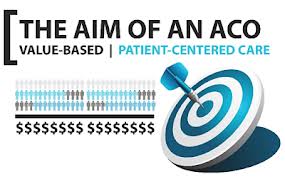

Without a doubt, the Mayo Clinic is paving the way in the healthcare social media realm with the development of the Mayo Clinic Center for Social Media (#MCCSM). Mayo Masterminds, Lee Aase and Farris Timimi MD, have recently collected short essays by 29 social media leaders in healthcare into Bringing the Social Media #Revolution to Health Care. The book will set you back ten bucks, but you will gain huge insight into bringing together social media strategy and practice. Below are a few of our favorite quotes from the first two chapters: Getting Inspired and Being Strategic.
Health Care Social Media Is About Passion by Patricia Anderson, @PFAnderson
I don’t know about other people, but for me, social media in health care is about passion. It’s about stories and storytelling. It’s about reaching out, being a support, answering questions, and getting answers to my own questions. It’s about sharing, observing, learning, humility, friendship, discovery, and surprise.
Gear Up for Change That’s Already Here by Ed Bennett, @EdBennett
These trends [social media] are now converging within the health care industry:
1. Workforce demographics: Staff who grew up with social media are getting into more senior management positions.
2. Patient expectations: Patients use social media to connect with hospitals and health care professionals for themselves and families.
3. Patient communities: Empowered patients use social media to take charge of their own health and encourage others to do the same.
Seven Common-Sense Tips by Chris Boyer, @ChrisBoyer
1. If you are afraid to run your own personal Twitter or Facebook page, you may not be the right person to run one for your business.
2. Using social media for business is slightly different than using it for yourself; but remember, people appreciate businesses that speak in a “human voice.”
3. People don’t really care about DaVinci robots and quality awards. They simply want to trust that you’re the best health care provider. Focus on building trust.
4. Having a network of peers not only helps you learn from others, it can also provide a valuable emotional support network when you might be struggling.
5. Don’t try to use every social media platform for each strategy; it’s better to choose the right tools for the right strategy.
6. Don’t forget we’re doing this for business reasons – if you can’t report on the measurement of your success, you run the risk of letting your successor do it better.
7. The cost to start a social media strategy is far less than the cost for traditional media efforts; failure is sometimes OK, but by all means, do what’s right for the patients.
Think Sociologically by Meredith Gould, PhD, @meredithgould
Years of active participant observation in health care social media have me convinced social media offers great tools for transforming individuals into groups and groups into communities. We simply need to think more sociologically to create strategies to help make this happen – for the sake of better health and health care delivery.
Have you read the book yet? What are some of your favorite takeaways?







